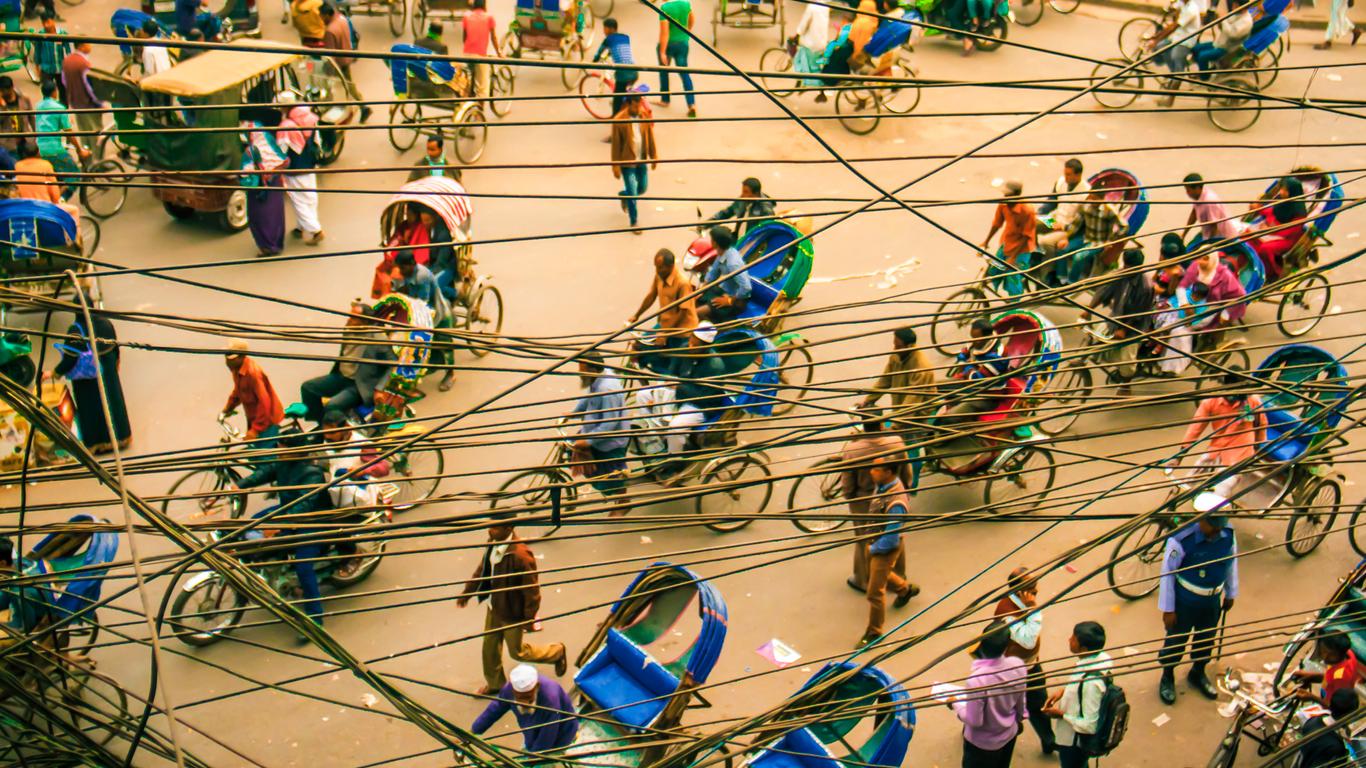How to get to and from DEL and Delhi
The Delhi Metro Orange Line, also known as the Airport Express, directly connects IGI Airport Station to New Delhi Station in just 15 minutes, zooming along at speeds of up to 120 km/h en route as it runs every 10 minutes. Although I was personally sceptical the first time I used it, given years of mixed experiences riding Indian trains, I’ve found it to be a reliable way of traveling between the airport and city centre.
DEL sits around 19 km from the central districts of Delhi, including the Indian capital of New Delhi. The airport is notable for being the only major international airport in India to have a high-speed rail link to the city it serves, though some travellers will still prefer to get to or from the airport via private car.
Another potential pitfall of taxis between Delhi and DEL airport? Scams, which will come as no surprise to you if you’ve travelled in India at all. To avoid circuitous routings, fake meters or bogus charges, I recommend using Uber, or even arranging a transfer in advance with your hotel in Delhi.
Transfers at DEL
I know from personal experience that it can take 30 minutes or longer just to travel between Terminal 1 and Terminal 2/3, whether by taxi or free airport shuttle bus. Plus, once you reach your destination terminal, you’ll need to clear security (and, if you’re travelling internationally, passport control). As a result, I recommend giving yourself a minimum window of four hours in the event that you will need to transfer between Terminals 1 and 3.
Navigating security lines at DEL
Once you pass this initial security screening and complete any check-in procedures you weren’t able to do online, including bag drop, you’ll proceed to a security screening comparable to what you’d experience at Canadian airports. Here, too, the process is more stringent.
If you’re travelling internationally, you’ll need to complete passport control procedures prior to accessing the main security lines. DEL operates opposite from how the system operates at most other airports abroad where passport checks upon exit are required, as security usually comes before immigration. Don’t be surprised when the first person you see after completing check-in is an immigration officer!
Closely follow your airline’s recommendations for how early to reach the airport, as this will take into account expected security processing time. Since many international flights depart only once per day (or even less than daily), missing your flight at DEL is a mistake you’ll want to avoid making.
Transit hotel at DEL
Airline lounges and alternatives at DEL
A variety of airport lounges are available at DEL, with the majority of these operating within the international departures area of Terminal 3. The lounge you can access will vary, depending upon your class of travel, your airline elite status and whether you plan to gain access by paying cash, or by using a credential such as Priority Pass.
Airlines will direct international first- and business-class passengers to Encalm Privé. This is a common-use lounge not affiliated with or run by a particular carrier. With buffet-style Indian and Western dining, as well as limited chef-cooked meals, an open bar, a business centre and shower facilities, it is by far the most luxurious lounge option at DEL.
Notably, Air India’s Maharaja Lounge, its flagship lounge, closed for renovation in 2024, with no firm reopening date set. If you’re travelling in international first or business class on Air India, you’ll get access to Encalm Privé instead.
Domestic travellers have several lounge options as well. The domestic Air India Lounge in Terminal 3 remains open, even as the Maharaja Lounge is under renovation. Additionally, Encalm operates Encalm Lounge located in Terminals 1 and 2, as well as in the domestic area of Terminal 3.
One unique fact about New Delhi Airport is that nearly all its lounges allow paid access. This is in contrast to many lounges in North America and Europe, where access is based primarily on either your travel class or your status with an airline. If you have a long layover but don’t want to splurge on a stay at the airport’s transit hotel, paying for lounge access can be a nice compromise.
Luggage storage at DEL
Passengers using Terminal 3 can take advantage of the spacious CloakRoom, which has the capacity to store thousands of bags for as little as an hour or as long as 30 days. Rates range from as little as 100 rupees to store a small bag for an hour, to 800 rupees to store a large bag for a day (about CA$1.60 to CA$13.00 respectively).
If you’re arriving at Terminal 1 or 2 and need to store your luggage at the airport, I think it’s worth it to go to Terminal 3 to use this official facility. Scams run rampant in India—there’s a real chance that if you deposit your belongings somewhere else, you’ll never see them again. I may or may not be speaking from personal experience!
This KAYAK-commissioned article is presented as-is, for general informational purposes only, and may not be up-to-date. The opinions contained in the article are original to the author and reflect their authentic experience, which may vary significantly from the experience of others.
